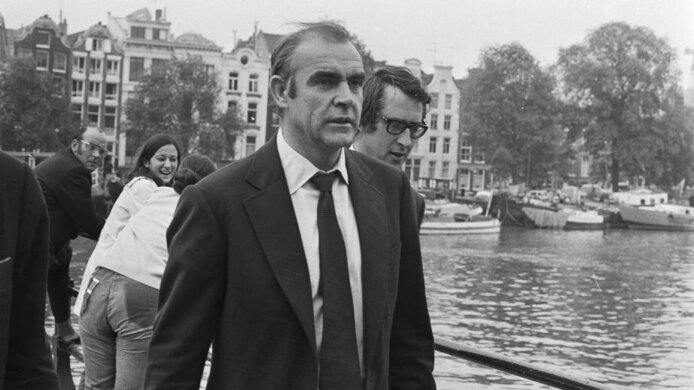Spy fiction and movie espionage

British secret agents from James Bond to George Smiley have had no trouble making the leap from the page to the silver screen. However, there is much more to the depiction of secret agents as playboys, amateur adventurers or calculating masterminds, as well as their mission to glean secret information, than first meets the eye. "This popular genre has proven itself as an ideal means for familiarising a large group of readers with prime examples of national heroism or commentaries on topics like corruption and treason," explains Alan Burton, a researcher at the Alpen Adria Universität Klagenfurt, as well as the University of Leicester. One starting point for the study is the decisive influence of Great Britain on the public's perception of secret services by virtue of being the world’s leading source of spy fiction and films. Burton is now compiling the project findings into two published studies on spy fiction and movie espionage.
From amateurs to pros
One important step in the FWF project is the publication of the "Historical Dictionary of British Spy Fiction". In 300 entries spread across over 500 pages, Burton provides an overview of more than a century of spy fiction, its authors as well as its secret agent characters, in the context of cultural history. As Burton explains: "Before the First World War, there was no intelligence system in England, and novels presented the spy as a gentleman from the upper classes, who as an amateur adventurer not only defied the main adversary Germany, but also saved the empire in the process." The genre then peaked during the Cold War era. Political developments during this time formed the backdrop to John Le Carré’s George Smiley novels as well as Ian Fleming's James Bond series, for instance. "Le Carré, who worked for the British Secret Service himself, addressed socio-political issues regarding loyalty and patriotism more realistically and cynically," says Burton. Contemporary novels pick up on fears of invasion similar to those of the late Victorian period, however, the focus today is on topics like terrorism and the surveillance and the (mis)use of sensitive data. As the soon-to-be-published work shows, the years of research have certainly been worthwhile – not least as the "Historical Dictionaries" series is a fixture in library inventories around the globe and the work will therefore be available to millions of readers worldwide.
Espionage on the silver screen and in the living room
This study will be followed by another publication from Edinburgh University Press. It will, for the first time, examine espionage dramas in film and TV right up to the present day. Special attention is dedicated to the depiction of new threats since the end of the Cold War and spy figures in a production and reception context. Various cinematic interpretations have been observed down the years. For example, at the start of the Thatcher Era, "The shift to the right in British politics was also reflected in a range of TV espionage dramas, which once again nostalgically picked up on the tradition of the gentleman hero combating simplified enemies. These are contrasted by productions which address espionage scandals and political involvement, and problems with handling secret information and issues of national security", explains Burton. Overall, 73 films and 70 TV dramas are analysed and considered in their historical and critical contexts.
"Intelligence" is not only for intelligence studies
By including aspects of cultural history in the study, the FWF project reveals the multi-facetted socio-political issues covered in spy fiction and espionage films. This not only provides valuable insights and perspectives for the emerging discipline of intelligence studies, but also for interested members of the general public.
Personal details Alan Burton is a former FWF Senior Research Fellow at the Alpen-Adria Universität Klagenfurt and a Lecturer for Film and Cultural Studies. His research specialises in the history of British film. He is a founding member of the Journal of British Cinema and Television (Edinburgh University Press) and a member of the editorial team of the Dictionary of National Biography (Oxford University Press). One of his latest publications, “The Historical Dictionary of British Cinema” (2013), was included in the “Best Reference Books for 2013” list compiled by the influential US-based Library Journal.
Publication





